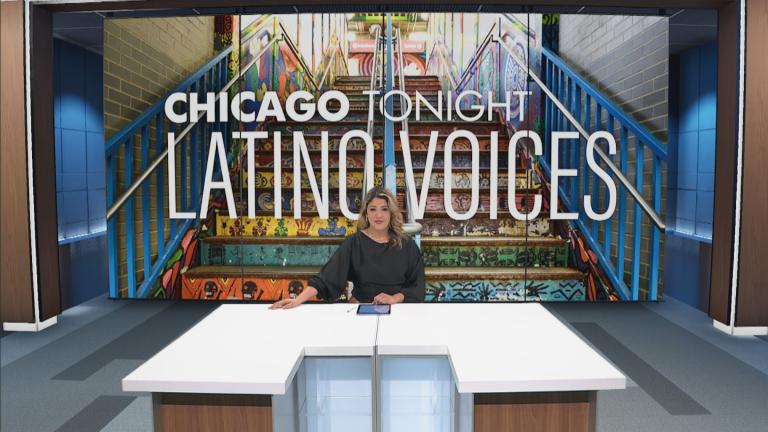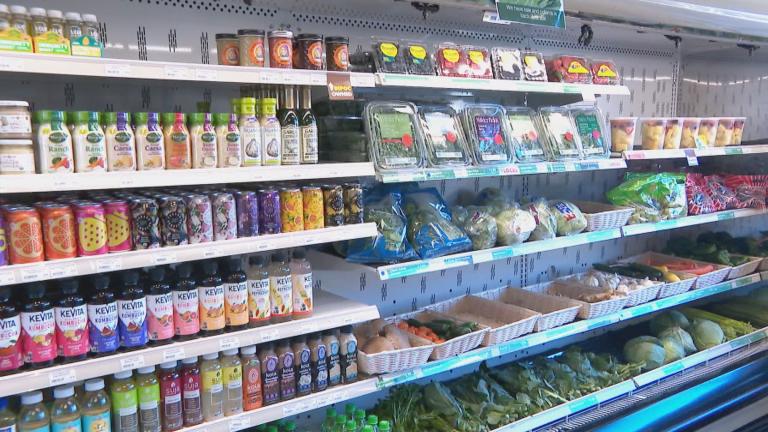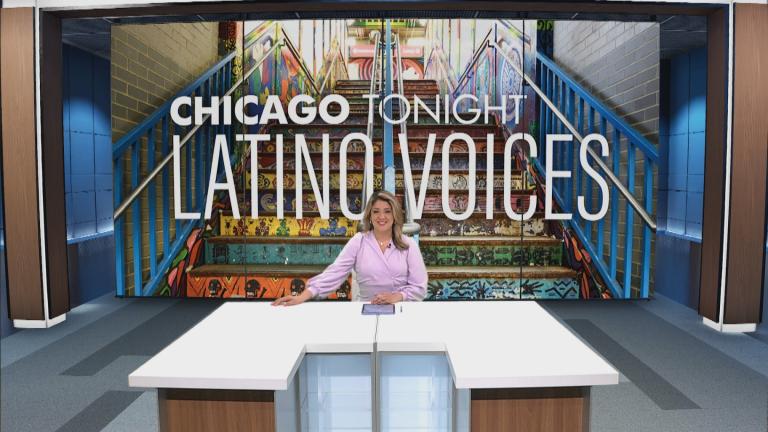More than 10,000 asylum-seeking migrants have arrived in Chicago since last August. Their journeys have been long and often dangerous, spanning multiple countries with little or no access to health care.
As part of the city’s response, police stations have become makeshift shelters for new migrants before they transition into long-term housing.
Recently, a volunteer team of medical students has begun making the rounds at those police stations to assist with refugees’ health needs. Sara Izquierdo, a first year medical student at the University of Illinois Chicago, is part of the volunteer Mobile Migrant Health Team.
“We are medical students who are volunteering with attending and resident physicians who are also donating their time to go to the police stations and provide medical care,” Izquierdo said. “So, under the physician supervision, medical students who are bilingual like myself and have certification to interpret are going talking to patients, triaging, and then taking these cases to talk to the physicians on staff. We’ve replicated this model in over 10 police stations so far and several shelters and it’s been very successful.”
Dr. Geraldine Luna, Chicago Department of Public Health medical director, said all migrants arriving in Chicago have already been screened for conditions that would pose threats to public health.
“They get their screening for public health disease … but also immediate medical care and looking to establish preventative care to keep them from progressing diseases and fulfill the immediate needs,” Luna said. “And here, the next thing that happens is pretty much the same. We go again under that scrutiny for public health threats, diseases, communicable diseases and the other most important thing, or as equally as important, is immediate health care.”
Izquierdo said her experience caring for migrants indicates few serious problems.
“The most common thing I think that I think I’ve seen is a common cold,” Izquierdo said “A lot of people have been on very long migratory journeys and some people have been traveling for six to eight months, and the way that they’ve been traveling is a lot of walking on top of trains through jungle passes. This is a very young and strong group of people, but they’re a little worse for wear right now.”
The communicable diseases they are seeing tend to be ones Americans are by and large vaccinated against, Luna said.
“Diseases for children, pretty much in places where vaccination doesn’t exist,” Luna said. “And fortunately for Americans, we have had zero transmissions from immigrants to any other Americans being the migrant community. And it’s because we’re heavily vaccinated, our children are vaccinated as part of the protocol when they enroll in schools. So at this point, public health threats, we don’t see any that happened, any of our police have … been infected by any of our migrants.”
Izquierdo said the uncertainty of the situation adds to the logistical challenge.
“We don’t know when the buses are going to come, so getting people to follow up care, getting them connected to clinics has been very difficult because what if a bus comes and takes them to their shelter that’s, 30, 40 minutes away?” Izquierdo said. “The other one is just language — like for any person in the United States that speaks a language other than English, sometimes it’s more difficult to access quality care in a clinic in a hospital just with a physician in general.”
“We had these traditional sheltering that we were doing before we ended up in this crisis. With that space saturated now we’re dealing with severe scarcity,” Luna said. “CDPH has had to step up in a lot of things -- we’re normally not health care providers. We’re normally we’re just checking out the communicable diseases, but now we’re centralizing this care, and without our allies…it wouldn’t be possible.”
The Mobile Migrant Health Team is accepting donations at their GoFundMe page.








